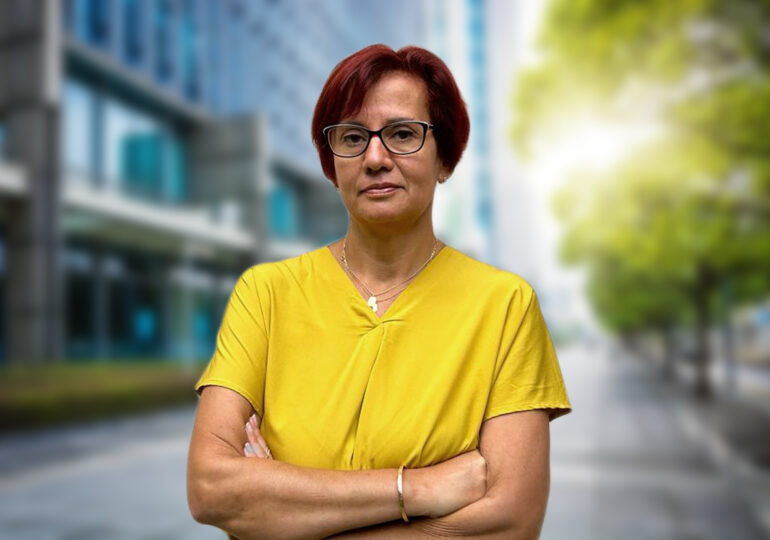The discussion about future presidential candidacies in the non-extremist segment has become a sort of brainstorming session from which various options emerge based on political, cultural, intellectual sympathies, or the fantasies of each speaker.
Names with great intellectual substance are invoked, like that of the UBB rector, exotic names like Daniel Funeriu, or brought out from obscurity, like Crin Antonescu. The mirage of independence hovers around, we are quite tired of party presidents.
- Daniel David, presidential candidate? What conditions are set and what should pro-European parties do now
- Daniel Funeriu: Yes, I want to run for the Presidency of Romania
- What Crin Antonescu says about a potential candidacy for the Presidency
Altogether, not only do we remain without answers, but the questions that should kick off this process of identifying a suitable candidate are not even posed for the highest office of the state, a position with a job description that is not only important but, in fact, highly dependent on the potential of the holder.
Based on the answers to these questions, the solutions will naturally emerge, and in the end, the correct ones may become clearer.
So:
1. Do we just want to avert danger of seeing an acclaimed/extremist charlatan installed at Cotroceni using any solution, even if we vote for it reluctantly?
Or do we understand that the mandate we are choosing is for 5 years in which the fight against extremism will be ongoing, and we cannot even anticipate yet what other challenges may arise?
Therefore, do we assess solely in relation to the interim objective, undeniably important but not singular, or do we want a president for 5 years?
2. Polls show that we want an involved president. But in what way involved?
With a real say in Romania's development, not just in terms of rhetoric but also decision-making? Or involved in analyses, in observations and concerns that keep us entertained with beautiful speeches, as frequent as possible, giving interviews, as frequent as possible, from which we learn profound analyses of Romanian realities, but without powers beyond those strictly provided by the Constitution?
It should be very clear to us that only a president with strong control over one of the parliamentary parties has a say in key decisions. Otherwise, not even the heads of SRI and SIE will be able to support them if they are not favored by the parliamentary majority that must vote for them.
If we want a president involved in decision-making, who responds to the popular vote with more than just the symbolic power of giving periodic speeches and representing externally, they can only be a political figure at the top of a political party.
Yes, politics is discredited, yes, political parties are rightfully scorned, but democracy cannot exist without them. So, the solution is not to abandon them; the solution is for their re-credibility to start, even from the upcoming candidacies.
And to make it very clear what an independent can or cannot do, we have the relatively recent experience of the technocratic government behind which parties hid after Colectiv. And an independent prime minister has more power by legal and constitutional attributions than a legally and constitutionally independent president.
As tempting as the names of high-caliber intellectuals may be, they would have no chance of meeting public expectations from the presidential position.
There seems to be a reluctance towards the candidacy of presidents or, in general, top leaders of parties. Voting means public validation, a prerequisite to being at the top of politics. If you don't pass this litmus test or if you fail it, how can you be legitimate at the top?
One of the reasons we ended up in the horrible situation of November 24th was that the main parties had candidates without political track records, without individual political testing, a kind of lab-produced products that withered in direct combat and led their parties astray.
Perhaps the most difficult question is whether there should be a common candidate to face the possible (although we should have great reservations that the plan will succeed) candidate of the extremists.
The only strong argument, indeed, in favor of this solution would be to shield the government from the infernal pressure of competition among coalition parties. If not a charade, it is almost impossible to maintain balance in an alliance whose components are in competition. It goes against political logic.
Furthermore, the solution is credible only under the conditions of a president-premier tandem proposed by two parties that commit to run together and continue governing together, with the first governance formula under the sign of the interim until the presidential elections.
But a candidate acceptable to the electorates of PSD, PNL, USR, and UDMR from the outset, with the abandonment of a party candidate, is an illusion.
They could meet contradictory demands only if they were a character completely devoid of political identity and ambitions, who would not even attract the devil to vote, as they would not be interesting at all. Let's not forget that a lesson from the November 24th election was that parties no longer control territorial structures, and traditional election rules no longer apply.
Or if, under the pressure of panic, they were voted for, they would become the strawman president we mentioned earlier.
From time to time, voters complain that they have been deceived, that they are disappointed. But the raw material of deception and disappointment is unrealistic expectations. When you put pancake batter in the pan, you won't get a sponge cake, no matter how much you hope.

